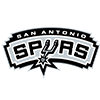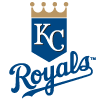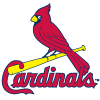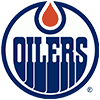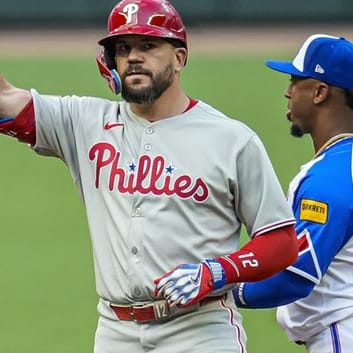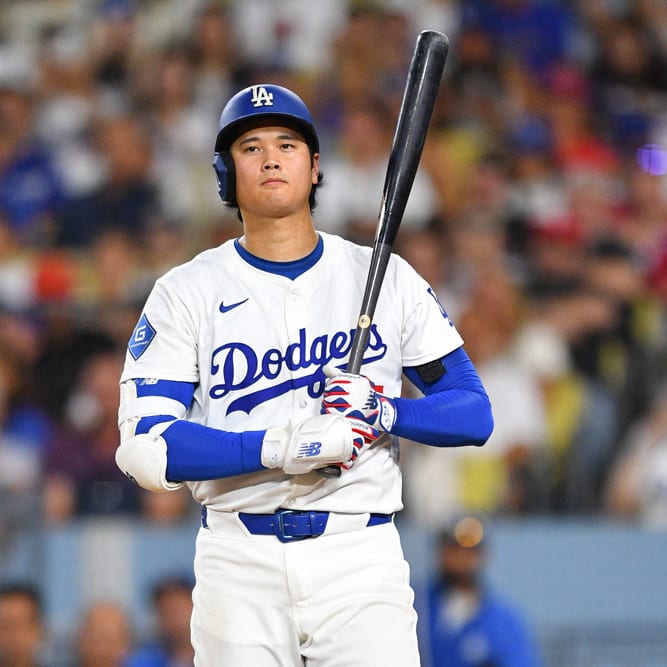MLB Daily Games Strategy: How to Pick a Pitcher
I often write in my head for days before I sit down and put it into my laptop. I'm a classic multi-tasker, so I write while cleaning my house, while walking the insanely long walk from the parking lot to my office, while driving, whenever, just so when I do sit down I know what I want to say. So all week I've been writing this article about pitching as the most important position in MLB DFS. You can't win without it was basically my central theme.
Last week I kind of jumped in with a stats based article because it was a question that had been plaguing me when I set lineups (basically, how much does batter vs L/R pitcher historical stats predict current stats). For this MLB DFS Strategy series, though, I want to analyze each position in turn, because I think your strategy varies. I want to look at which metrics and situations best predict success at each position, with the hope of identifying some patterns we can use in constructing better lineups. I'll probably end up interspersing some stats analysis articles because in my relative naiveté I sometimes look at data in unconventional ways that benefit from your feedback.
Back to pitching, which is the position I typically feel most confident about when doing my daily lineups. I started this DFS MLB season with the idea that you should always pay for pitching, particularly on one-pitcher
MLB Daily Games Strategy: How to Pick a Pitcher
I often write in my head for days before I sit down and put it into my laptop. I'm a classic multi-tasker, so I write while cleaning my house, while walking the insanely long walk from the parking lot to my office, while driving, whenever, just so when I do sit down I know what I want to say. So all week I've been writing this article about pitching as the most important position in MLB DFS. You can't win without it was basically my central theme.
Last week I kind of jumped in with a stats based article because it was a question that had been plaguing me when I set lineups (basically, how much does batter vs L/R pitcher historical stats predict current stats). For this MLB DFS Strategy series, though, I want to analyze each position in turn, because I think your strategy varies. I want to look at which metrics and situations best predict success at each position, with the hope of identifying some patterns we can use in constructing better lineups. I'll probably end up interspersing some stats analysis articles because in my relative naiveté I sometimes look at data in unconventional ways that benefit from your feedback.
Back to pitching, which is the position I typically feel most confident about when doing my daily lineups. I started this DFS MLB season with the idea that you should always pay for pitching, particularly on one-pitcher sites. I play pretty much exclusively on a two-pitcher site nowadays, so I'll mostly be discussing that, but I when I started I played around on a bunch of sites. What I found was that if you got your single P pretty right, you had a chance to cash your games (I play approximately 90% 50/50's) but it came down to your bats. In other words, the winning lineups all had good pitchers and having a bad pitcher was nearly impossible to overcome. Not rocket science, I know.
On two-pitcher sites, I've had much more varied experience, especially over this last week, which is why I introduced the concept of pre-writing and how it failed me today. In the beginning I would almost always take the two best pitchers, or two of the top three or four. Scherzer and Wainwright, 43% of my cap, sure. The way pitching stats can accumulate, you can win if both of your two pitchers are great, even if none of your bats go off. Usually you get some run/HR support from your hitters, so if you have solid pitching, it's hard to lose in the 50/50's.
Over the past week, I've grown more confident in my DFS game and started rolling out multiple lineups in order to try different approaches. Without boring you to death talking about my teams, I want to point out that no clear rule emerges from my recent experience. My best lineups over the past few days have featured Gavin Floyd (27 fpts) and Jesse Chavez (42 fpts) for around 22% of my cap (finished basically top 5 in every game Monday night), Jonathan Niese (18 fpts) and Roenis Elias (11 fpts) for 23% of my cap (finished top 5, and 3rd in a GPP Sunday night), and Nathan Eovaldi (7 fpts) and Yordano Ventura (9 fpts) for 30% of my cap (finished 1st in cash games, entered zero GPPs). How did these pitchers do? They were all over the place. But all three of those lineups dominated. This little experiment (there were many more lineups, some just as successful as these, some not) showed me that pitching may not be as indispensable as I originally thought. For example, over these past few days, my weakest lineups contained Clayton Kershaw and Dan Haren. Neither guy was bad, but the extra cap money spent at P really limited my hitting options. On other days, I got by with bad-to-mediocre pitching because I could afford stud hitters with low floors and high ceilings.
You'll learn, if you don't know me well enough already, that I like simple rules. I know baseball is not a simple rule game, and that predictability is limited at best, but it doesn't mean I won't keep trying. Here's how I approach the pitcher position every day. I start with Vegas. Vegas factors in so many things that I don't have time to memorize. Let them! Best shortcut out there (I may write that in every single strategy article I write). I look for games with low over/under, good weather, and a heavy favorite. Things that have been pre-factored in? Park, opponent scoring/SO rates, pitcher stats, splits, likely lineups, wind, rain, and probably 50 other angles I don't even think of. So I don't revisit those things. I get a preliminary list of pitchers I would use and then go to my DFS site to check salaries and game logs. Knowing a pitcher's ERA, WHIP, etc. is fine, but fantasy points come heavily from strike outs and innings pitched, so always check your pitcher's game log on the site you're playing. Scoring varies quite a bit between sites too, especially for wins, which are heavily weighted where I play.
Most sites do a very good job at valuing pitchers so that salary matches expected outcome. That doesn't mean that value can't be had. Particularly for good pitchers that have had few starts, play for bad teams, or had a few bad outings, salary can be depressed. I try to guess, using a very crude, in my head, cost benefit analysis at whether the most expensive pitcher is likely to outscore the cheap options on my short list by enough to justify his salary. Sometimes the answer is yes. I used Jose Fernandez on Friday, who alone was 22% of my cap. There was absolutely no logical reason to do otherwise. He had been the best pitcher in baseball and was facing the Padres. Even pairing him with Corey Kluber, who had a great night, wasn't enough to make up for the lack of power that came from rostering outfielders like George Springer and Stefen Romero (combined for -7). I failed to cash every game that night.
I believe that pitching is the cornerstone of your lineup. Great pitching at any cost almost guarantees a win, though you can have a really unlucky night at the plate as I did last Wednesday (Wainwright and Porcello for 72 fpts yet I lost across the board). On nights without stellar hitting matchups, like when stud hitters are facing ace pitchers, it makes sense to spend on the ace pitchers. On nights with a lot of potentially high scoring games and great hitter matchups, try spending less on pitching.Unless you have a total train wreck in there-- sorry to the roughly 22% of you who rostered Tyler Lyons (-19 fpts) last night, I know it's too soon--you can make up for mediocre but cheap pitching.
So try some different pitcher combinations on your favorite site and let me know what works for you. After taking just a quick look at tonight's busy slate, I'm probably paying for pitching. The Cubs frankly aren't due to score another run for at least two weeks, but hopefully not everyone will trust Wainwright tonight after last night's outburst. With Price, Iwakuma, Lee, and Strasburg also on the mound tonight, it'll be hard not to pay up. Good luck!







